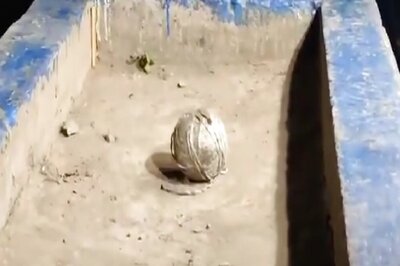
views
On 26 February, twelve Mirage 2000 fighter jets of the Indian Army were chosen for a "non-military, pre-emptive strike" on the camp of the terrorist group Jaish-e-Mohammed (JeM) inside the Pakistan territory. The Mirage 2000 jets were chosen due to their advanced capabilities of hitting long-range targets with "pin-point" accuracy and dropping a range of bombs and missiles including laser-guided ones, Indian government sources had said earlier. The weapons used by the Indian Air Force at its targe in Balakot, about 60 km from the Line of Control, were Israeli-developed SPICE-2000. The SPICE, which stands for Smart, Precise Impact and Cost-Effective, is a guidance and maneuvering kit manufactured by Israel's Rafael Advanced Defense Systems. The SPICE kit adds a sophisticated guidance system—consisting of inertial navigation, satellite guidance and electro-optical sensors for pinpoint accuracy—and control fins to a conventional unguided bomb.
The SPICE-2000 is reportedly the biggest conventional bomb that can be delivered by the IAF. It is used on French-origin Mirage-2000 jets. The IAF acquired SPICE-2000 for use against fortified & underground command centres. The SPICE-1000 kit, which is available for 500kg bombs, has a glide range of nearly 100km, while the SPICE-2000 (meant for 1,000kg bombs) has a glide range of around 60km. Weapons like the SPICE-1000 and the SPICE-2000, are also difficult to detect by most ground-based radars. SPICE can overcome errors in locating the target, GPS jamming and reduces collateral damage.
The Indian Air Force is in the process of equipping its Su-30MKI with Israeli SPICE-2000 laser-guided bombs, it is being reported. Once the Spice-2000 smart bombs are integrated with the Sukhoi Su-30 jets, it will be a major upgrade for the Indian Air Force as a major part of its fleet will be able to launch these smart bombs.




















Comments
0 comment